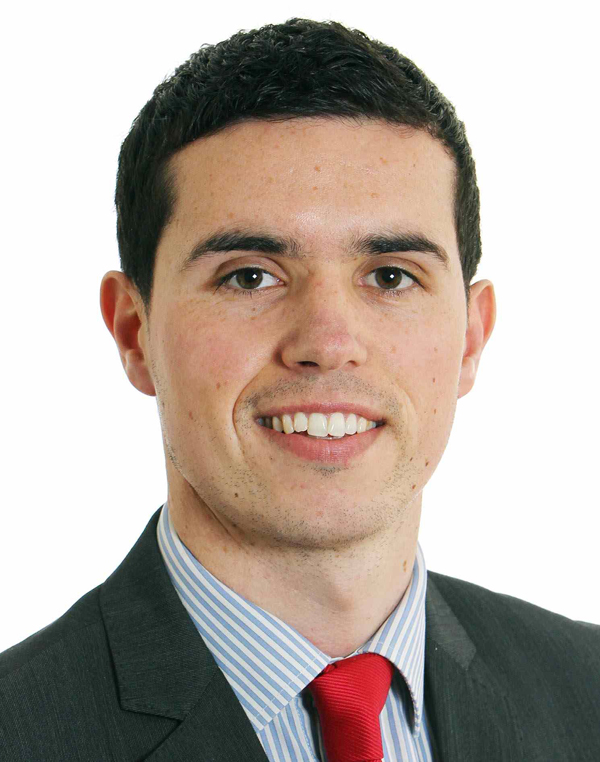“It took me a long time to step up and follow my own intuition.”

What work were you doing previously?
I was working as a corporate lawyer in a big law firm.
I specialised in Renewable Energy and IP/IT law.
What are you doing now?
Co-Founder and COO of Soundwave - a social network for music.
Our app allows users to see what their friends. family and favourites are listening to and where, in real-time.
Why did you change?
It's almost cliched at this stage but I suppose I 'fell' into law after completing an general Arts degree, because I didn't really know what I wanted to do.
I think I liked the underlying ideals associated with the profession. Unfortunately, the day to day realities of working as a solicitor were quite different (to put it diplomatically!).
When was the moment you decided to make the change?
I quickly realised that I'd never be able to create the type of value that I wanted to by working as a lawyer.
I wasn't prepared to wait 10-15 years to become a partner with the off-chance that I might then be able to fulfil my goals. Around the same time, I came across a story about a couple of young business and law grads from the UK, who had moved to Silicon Valley and successfully set up and sold an online auction and marketplace management system (auctomatic.com).
This reaffirmed my decision to leave, take a punt on myself and make the change.
Are you happy with the change?
Yes, very much so.
It's single-handedly the best professional decision that I've made.
What do you miss and what don't you miss?
I would miss a lot of the people that I studied and worked with.
I enjoyed meeting a lot of the clients too, who were at the cutting edge of their respective industries (who also taught me a lot over the years).
I don't particularly miss anything else about the job.
How did you go about making the shift?
One of the key steps that I took was in setting up an online business while I was still working full-time as a solicitor.
Along with a couple of other founders, we developed an online marketplace for short term (or pop-up) lettings, matching vacant commercial spaces with retailers, creatives and entrepreneurs.
Although it didn't work out in the end, this was a great way to learn with the cushion of a salary at the same time. I took all the lessons from this into my next venture.
Another thing that helped was improving my skill-sets in areas where I had no real experience. I learnt to code and design the basics at night, and took up toastmasters to improve my presentation skills.
How did you handle your finances to make your change possible?
I saved a lot and cut my expenses to the bare minimum.
I don't think there are any short cuts here. Cash flow is probably the biggest barrier stopping people from making career changes that they might otherwise.
A high salary and expensive lifestyle is a crutch that stops a lot of smart and ambitious people that I know from going out on their own.
What was the most difficult thing about changing?
The reaction by people who were supposedly looking out for my best interests.
If I'd listened to them, I probably wouldn't have made the change.
You need to follow your gut.
What help did you get? 
My fiancé was my biggest supporter during the change which made all the difference.
What resources would you recommend to others?
Human Capital - go out and meet people who are already working in the area that you're interested in moving into.
Buy them coffees, ask them questions and find out how they got there before you commit to any change.
If I'd done this with a corporate lawyer before I decided to go down that route, I could have saved myself a lot of time!
What have you learnt in the process?
That you should claim your early twenties and have a plan of what you want to do with your life.
I come from a family of self-starters, and probably knew that I'd end up setting up my own business at some stage. Leaving this up to chance was just laziness on my part.
It took me a long time to step up and follow my own intuition. You need to own your career from day one. If it's not aligned with your long term goals then leave or start investing time in your chosen area whenever you can.
Comfort will cost you in the long run.
What do you wish you'd done differently?
Started earlier.
There's a time to earn and a time to learn. I think I got these mixed up in my early twenties and should have taken more risks and less take-home pay.
What would you advise others to do in the same situation?
Reverse engineer whatever it is that you want to achieve.
Work out what it is that you want to work at, write it down and work out what you need to do to get there. Do you need to go back to school, hone your skills in a certain area, or save money?
The sooner you work out the next steps, the easier it will be to commit to any change.
Small incremental steps are a lot easier than one huge transition. Make the changes that are within your control and keep making them until you're ready to jump.
The other thing that helped me was thinking about worst case scenarios. When you objectively weigh these up, I guarantee you that the downside isn't as bad as you think.
I knew that even if things went wrong, I'd learn enough and make enough connections to ensure that my options would still be a lot better after making the change.
What lessons could you take from Craig's story to use in your own career change? Let us know in the comments below.



